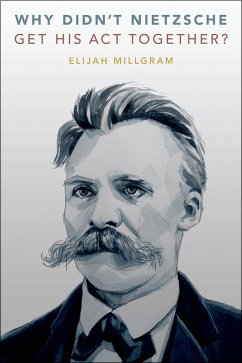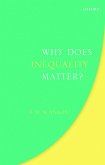Nietzsche wrote the philosophical work for which he is most famous while he was coming apart at the seams. The circumstances of Nietzsche's dramatic psychological disintegration make his writing, while popular, often hard for readers to understand. Elijah Millgram here argues for a new framework for making sense of Nietzsche-one that transforms the way we read him.
Why Didn't Nietzsche Get His Act Together? argues that Nietzsche's late works (from Thus Spoke Zarathustra onwards) should not be read as straightforwardly endorsing a consistent or systematic set of philosophical claims. Rather, these late works display Nietzsche living through a series of different personalities or philosophical perspectives. Each perspective embodies a different way of seeing the world, deploys different values, highlights certain features while occluding others, and is motivated by a different dominant drive. What one perspective emphasizes can be left out by another; what one perspective presents as valuable can be seen as neutral or even as damaging from another; what engenders the appearance of coherence or order in one perspective can do the opposite in another. Millgram claims that insofar as each human life embodies a perspective, and insofar as each of Nietzsche's late texts exhibits a distinct perspective, we can think of each of the late works as written by a different author. Millgram provides seven such readings of Nietzsche's most famous later works, and two concluding chapters discuss Nietzsche's perspectivism, as well as the account Nietzsche gives of why his very difficult life was nonetheless one that he could look back on without regret.
Dieser Download kann aus rechtlichen Gründen nur mit Rechnungsadresse in A, B, BG, CY, CZ, D, DK, EW, E, FIN, F, GR, HR, H, IRL, I, LT, L, LR, M, NL, PL, P, R, S, SLO, SK ausgeliefert werden.









